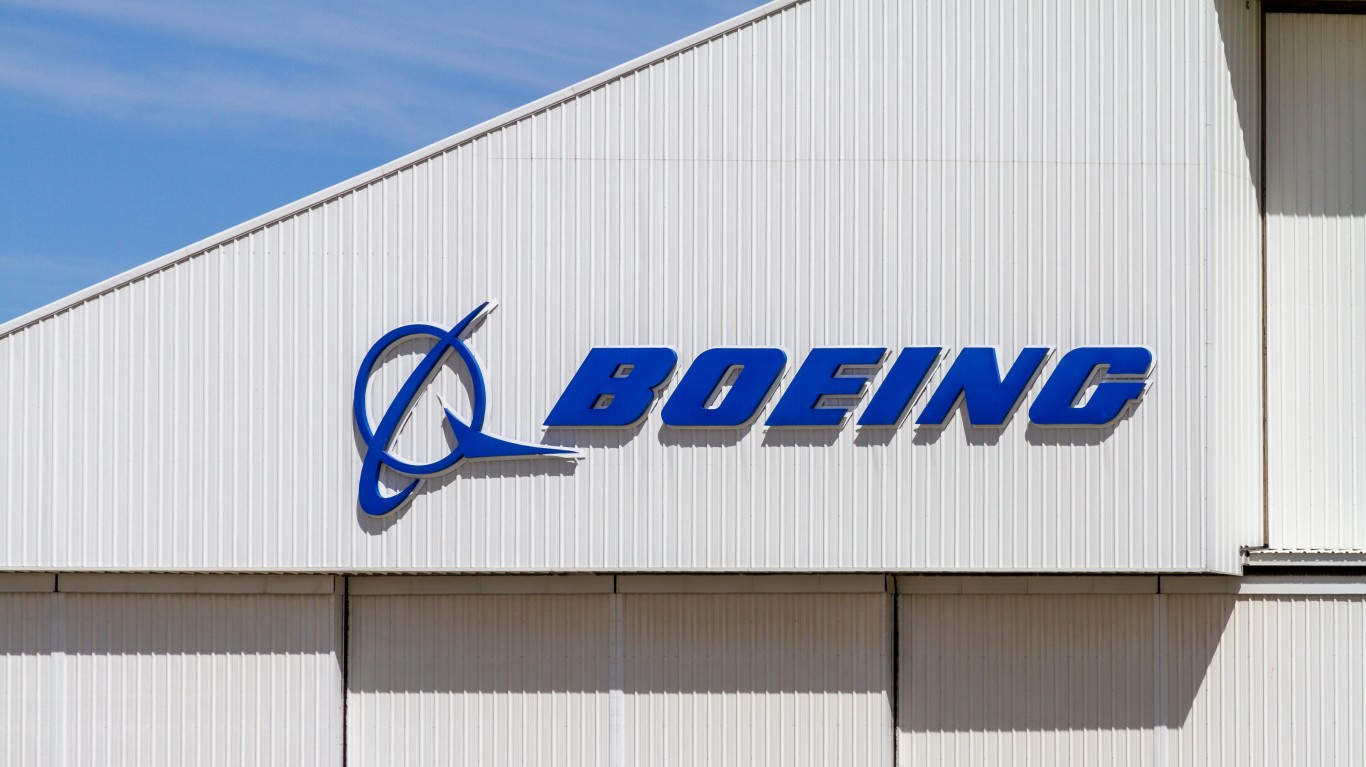
Boeing Co. (NYSE: BA) was in trouble long before the COVID-19 pandemic forever changed air travel. The Chicago-based aerospace giant was badly hobbled by two deadly crashes of its new 737 Max model in 2018 and 2019, resulting in about 500 planes being grounded worldwide. Now planes from all manufacturers have effectively been grounded by the coronavirus crisis, which was illustrated this weekend by Warren Buffett’s bad news for airline stocks.
Buffett announced that his Berkshire Hathaway (NYSE: BRK.A) is dumping all of its airline holdings, including American Airlines Group Inc. (NASDAQ: AAL), Delta Air Lines Inc. (NYSE: DAL), Southwest Airlines Co. (NYSE: LUV), and United Airlines Holdings Inc. (NASDAQ: UAL). “The airline business, and I may be wrong, and I hope I’m wrong, changed in a major way,” Buffett said of the pandemic lockdown. “I was wrong about that business.”
While no one knows when the airlines might recover or what recovery may look like, it’s reasonable to assume there won’t be many orders for new airplanes any time soon. Boeing dropped 2.4% in late trading Monday as the market absorbed Buffett’s decision. The stock is down about 60% for the year to date.
Disappointing Earnings Last Week
Even before Buffett’s blow, Boeing last week posted an adjusted diluted per-share loss of $1.70 on revenues of $16.91 billion for the first quarter. After that hit, the company said it would lay off 10% of its workforce, about 16,000 employees. The deepest cuts are expected in its commercial airline segment.
Buffett called Boeing “one hell of a company,” but said it’s just too difficult for an investor to predict when flights will return to 2019 levels, much less see growth again. If people aren’t flying, the airlines won’t be buying new planes.
In 2019, the Transportation Security Administration (TSA) typically screened 2.5 million domestic passengers per day. Last month, TSA was only screening about 100,000 per day. Some analysts believe it could take five years for the airline industry to fully recover.
Orders Down, Production Slows
Last week, Boeing said it expects to resume 737 Max production at “low rates,” increasing to 31 per month by the end of next year. The company’s production rate before halting new manufacturing was 42 per month, with plans to increase to 52 by next year.
United recently said it is discussing the timing for delivery of previously ordered 737 Max aircraft. “With respect to our new aircraft commitments, if the 737 Max is ungrounded later this year, we expect to take delivery of 16 Max aircraft this year,” said Gerry Laderman, United’s chief financial officer. The company originally ordered an additional 24 Max planes for 2021, but Laderman said, “I do not anticipate taking any of those aircraft, unless and until we need them.”
Boeing plans to make fewer of its other models, as well. Currently producing 14 787 Dreamliners per month, Boeing expects to build only seven per month in 2022. Similarly, the 777 and 777X will slow down from five per month to three by next year. No change in production frequency is expected for the 767 and 747 models, but the company only sells a handful of those per month.
Boeing’s Defensive Play
While the commercial airline industry is on hold, Boeing’s defense, space and security businesses look more stable. First quarter revenues in this division were $6 billion, down from $6.6 billion in Q1 2019. For comparison, Boeing’s commercial aircraft revenues plummeted to $6.2 billion in Q1 2020 from $11.8 billion year over year.
Defense spending should be fairly recession proof, and Boeing has many irons in the fire: fighter jets, rotorcraft, cybersecurity products, advanced weapons and missile defense.
“Our government services, defense and space programs will provide critical stability for us moving forward,” said CEO Dave Calhoun in a conference call with analysts last week. “In fact, our work in these areas accounted for 45 percent of our overall revenue in 2019. That will obviously increase in the year ahead.” It could be the one bright spot for aerospace stocks in this environment.
Boeing recently captured new defense business, including an award for 18 new P-8A Poseidon maritime patrol aircraft for the U.S. Navy and a contract to develop the SB>1 Defiant assault helicopter prototype for the U.S. Army. The company also has a backlog of $64 billion in defense/space business.
Want to Retire Early? Start Here (Sponsor)
Want retirement to come a few years earlier than you’d planned? Or are you ready to retire now, but want an extra set of eyes on your finances?
Now you can speak with up to 3 financial experts in your area for FREE. By simply clicking here you can begin to match with financial professionals who can help you build your plan to retire early. And the best part? The first conversation with them is free.
Click here to match with up to 3 financial pros who would be excited to help you make financial decisions.
Thank you for reading! Have some feedback for us?
Contact the 24/7 Wall St. editorial team.
 24/7 Wall St.
24/7 Wall St.